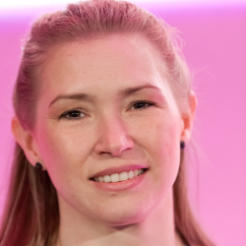The government’s proposed anti-advocacy clause risks turning charities into “silent service-providing machines”, the chief executive of Charity Finance Group, Caron Bradshaw has said.
Bradshaw, along with Paul Roberts, chief executive of LGBT Consortium and Kunle Olulode, director of Voice4Change England, has written to Cabinet Office minister, Matt Hancock, saying that they fear government proposals to prevent charities in receipt of government grants from lobbying in Parliament, would adversely affect disadvantaged groups.
Last month the government announced that it was "pausing on implementation". NCVO, Acevo and Social Enterprise UK have previously spoken out against the clause and Shelter has written to Hancock to ask him to stop using the charity as an example of it not affecting campaigning.
In a statement accompanying the letter, Bradshaw said: “We are not just silent service-providing machines. Charities have a duty to speak up for their beneficiaries and make sure that their needs are being considered by government. It was for this reason that governments of all stripes respected the Compact between government and the voluntary sector.”
The letter says that if the clause is introduced this will cause a “wider chill factor” for the sector.
“Charities that receive public funding [will be held] back from speaking up on behalf of beneficiaries for fear of being accused of misusing public money,” they said.
“It was to prevent this situation that the Compact signed by the Prime Minister in 2010 said the government would 'respect and uphold the independence of civil society organisations to deliver their mission, including their right to campaign, regardless of any relationship, financial or otherwise, which may exist'."
The inclusion of the phrase “financial or otherwise” was “specifically meant to prevent any clauses being introduced into funding arrangements which prevented charities and other civil society organisations from speaking out on behalf of their beneficiaries, particularly disadvantaged groups”, according to Bradshaw, Roberts and Olulode.
“The Compact between the government and the sector will have been broken,” they said. “This would mark a major backwards step in the relationship between the government and the sector.”
Bradshaw said she welcomed the government’s decision to “pause and reflect on the feedback received so far”.
“But we also need to see what consideration they have given to the impact of this clause. A big part of must be in the impact on disadvantaged groups that most need charities to give them a voice when it comes to policy making,” she said.
Consultation process
In a separate joint statement today, NCVO, Acevo and Social Enterprise UK have called for a “thorough and open consultation process” on the government's anti-advocacy proposals.
In a letter to the Cabinet Office, they said a consultation process would allow the Cabinet Office to put forward its own case and proposals “in a proper and transparent way” so that they can be “scrutinised and commented on” by the wider sector.
The statement comes a week after the government announced that it was “pausing on implementation” of the anti-advocacy clause, which would restrict organisations that receive taxpayers’ money from lobbying government.
While the bodies welcomed this pause, they were critical of the way in which the government tried to push the clause through without properly engaging with the voluntary sector, or assessing the impact the clause might have on “disadvantaged groups”.
“Ministers have already acknowledged that the government holds little evidence on which to base their policy, that its blanket implementation was not appropriate, and that the government has not yet attempted to assess the impact it may have on disadvantaged groups. An equality impact assessment and independent evaluation of the impact of the clause to date should clearly be part of the next steps.”
Additional reporting by Hugh Radojev









